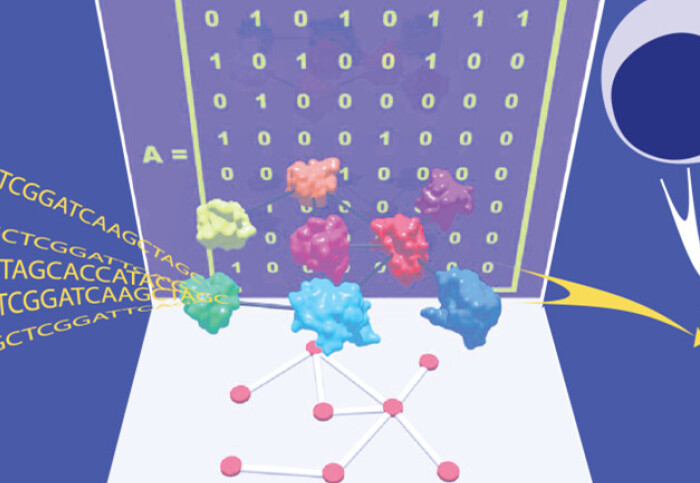Centre for Integrative Systems Biology and Bioinformatics Open Day
by Emily Govan

On 21 June, Imperial's Centre for Integrative Biology and Bioinformatics held its annual open day.
The Centre brings together scientists from a wide range of different fields to develop innovative interdisciplinary approaches to understanding biological problems.
A number of fantastic speakers attended the Open Day, both from Imperial and externally, and showcased their exciting new work. The programme highlighted recent research using mathematical modelling and machine learning. There was a great turnout from staff and students from a range of departments across College, including Life Sciences, Maths, Bioengineering and Computing. The Imperial attendees were joined by researchers from other London institutions and from other Universities including Kent, Bristol and Sussex.
"It was great to hold an in person meeting highlighting the advancements in modelling biological systems via mathematical analysis and machine learning". Professor Michael Sternberg Director
Professor Michael Sternberg, Director of the Centre, said 'It was great to hold an in person meeting highlighting the advancements in modelling biological systems via mathematical analysis and machine learning’.
Dr Lucy Colwell, from the Chemistry department of Cambridge University, talked about Machine learning to predict protein function from sequence with therapeutic applications. This was followed up by Life Sciences’ Dr Alessia David, who gave a talk on structure-based modelling of genetic variants. After a chance to network and share ideas, there were further talks.
Dr Nathan Skene from Imperial’s Brain Sciences got the audience thinking about the effects of SNPs on the cell type specific epigenome using attentional models. Professor Chris Bakal from the Institute of Cancer Research talked about using AI and data integration to learn about cell shape, develop new therapies, and create multimodal diagnostics.
Dr Ada Yan, from Imperial’s department of Infectious Disease told the audience about modelling the viral dynamics of the SARS-CoV-2 Delta and Omicron variants in different cell types. And Professor Ross King from Chalmers, Sweden, rounded off proceedings with a talk on Automating Systems Biology Research.
Professor Ross King said: ‘The Open Day made clear that the Centre is world leading in its research and teaching’.
Article text (excluding photos or graphics) © Imperial College London.
Photos and graphics subject to third party copyright used with permission or © Imperial College London.
Reporter
Emily Govan
Department of Life Sciences